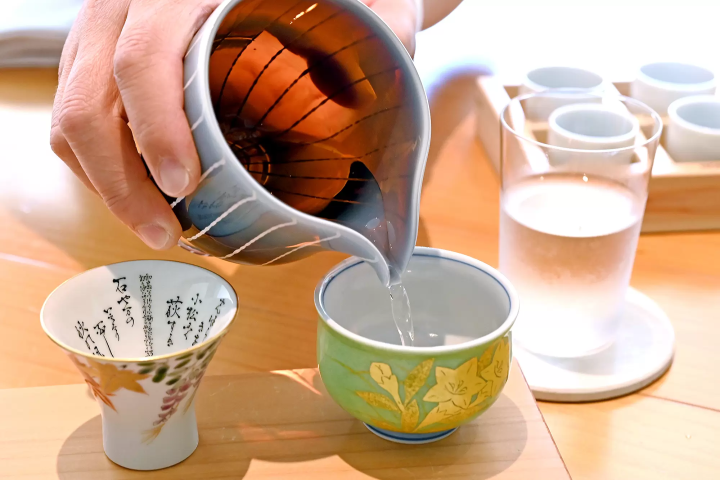14 Japanese Phrases for Making Requests and Asking for Help

Being able to use a few phrases in Japanese is a useful skill if you run into trouble or want to ask a favor while traveling in Japan. Learn basic expressions and simple ways to ask for help and make requests at restaurants and local businesses, or in emergencies.
Get Help Using Japanese
You're bound to have times when you're in a bit of a jam, don't know something or need help while on vacation anywhere in the world. Since a lot of people in Japan think that they aren't good at English, you might not be able to communicate easily in English with the locals. If you can talk to them using Japanese words, you'll be able to consult them about your problems and get help more easily.
In this article, we'll learn some convenient Japanese words and expressions to use when you want to ask a question or request something.
Polite Words to Use Before Asking a Question
1. Sumimasen. /Sorry, Pardon.
[sumimasen]
Sumimasen is an expression used when calling out to someone, apologizing lightly, and to convey appreciation.
Before speaking to a stranger, first call out to them by saying sumimasen. If you find that it is difficult to say this word, you can also say suimasen [suimasen] instead.
2. Chotto ii desu ka? / Excuse me.
[chotto i:deska]
Ii desu ka? is an expression used when asking the other person if it is okay to do or ask them something. If your question or request is going to take a bit of time to accomplish, it is best to combine it with "sumimasen".
Sumimasen, chotto ii desu ka?
[Sumimasen, chotto i:deska?]
is a polite way to say it.
Other Examples:
Kono pen, ii desu ka? May I borrow this pen?
[kono pen i:deska]
When we want to borrow a pen from the front desk, ask this question while pointing at the pen.
Shashin, ii desu ka? / May I take a photo? Or Can you take a photo of me?
[shashin i:deska]
When you want someone to take your picture at a sightseeing location or are asking if you are allowed to take photos, ask the question (if for a photo of yourself, while handing over the camera).
Chotto means ‘a little’. It's a Japanese word often used when requesting something.
3. Eigo demo ii desu ka? / Is English ok?
[e:go demo i:deska?]
When it's difficult to explain your situation in Japanese, ask them this to see if they can understand any English. If you want to speak in Japanese, but the other person is trying to speak English to you, you can ask Nihongo demo ii desu ka? [nihongo demo i:deska?].
4. Chotto oshiete kudasai/Could you tell me
[chotto oshiete kudasai]
Use these Japanese words when you want directions or there's something you don't know.
5. Chotto kite kudasai/Could you come with me?
[chotto kite kudasai]
This expression is helpful when there is something you don’t understand how to use in your hotel room and you would like the staff to come with you to explain it.
6. Chotto matte kudasai. / Please wait a moment.
[chotto matte kudasai]
Use these Japanese words when you want someone to wait for you for a little bit.
A Common Mistake:
In English, the expression "one second" means you want them to wait a bit. However, in Japanese there's a chance the phrase "ichi byou" won't be understood, so please be careful.
Expressions for When You're in Trouble
7. Mou chotto yukkuri onegai shimasu. / Please speak more slowly.
[mo: chotto yukkuri onegai shimas]
If the other person is speaking very quickly in Japanese, use this expression to politely ask them to slow down.
8. Butaniku wa chotto... / I cannot eat pork...
[butanikuwa chotto]
◯◯wa chotto... [◯◯wa chotto] is an expression used to express something that you're bad at, don't like or can’t eat/drink. Convey this by stretching out the ending and lowering the pitch while using a regretful facial expression.
*Examples:
Oniku wa chotto… / I cannot eat meat...
[onikuwa chotto]
Gyuniku wa chotto… I cannot eat beef...
[gyu:nikuwa chotto]
Tamago wa chotto… I cannot eat eggs...
[tamagowa chotto]
Nama mono wa chotto… I cannot eat raw food...
[namamonowa chotto]
For those who can't eat certain kinds of meat, the following phrases will be very helpful.
Kore wa nan no oniku desu ka? / What kind of meat is this?
[korewa nanno oniku deska]
* When saying [nanno], please pronounce the [nn] stretched out. If you say [nano], it sounds very unnatural.
The terms for the main different meat types are:
butaniku [butaniku] (pork), gyuniku [gyu:niku] (beef), toriniku [toriniku] (chicken), ramu [ramu] (lamb), but there are of course others not listed here.
9. Bejitarian de... / I’m a vegetarian...
[bejitariande]
◯◯de... [◯◯de] is an expression used when expressing your situation to the other person. Say it by stretching out the ending and lowering the pitch.
Examples:
Arerugi de… / I have an allergy...
[arerugi:de]
Shuukyou de… / Because of my religion...
[shu:kyo:de]
Nigate de… / I’m not good at/I don’t like...
[nigatede]
10. Chuugokugo ga wakaru hito imasu ka? / Is there anyone who understands Chinese?
[chu:gokugoga wakaru hitowa imaska]
*[h]… is a sound where you tighten your mouth and breath out, or the sound of the English word ‘he’ (he, she). If you've studied German before it'll sound like the German sound ch of ich.
◯◯ga wakaru hito wa imasu ka? [◯◯ga wakaru htowa imaska] is useful when asking whether there is someone available that can speak your native language.
Put your own country's language in the ◯◯ space.
Examples:
Eigo [e:go] English
Kankokugo [kankokugo] Korean
Betonamugo [betonamugo] Vietnamese
Taigo [taigo] Thai
Indoneshiago [indoneshiago] Indonesian
Expressions When Asking for Help
11. Tasukete!/Help!
[taskete]
Just as in English, this word is used in an emergency. Tetsudatte is an expression used when not in an emergency, and means ‘please help me’. When in an emergency, say taskete in a loud, clear voice.
12. Yamete!/Stop!
[yamete]
If someone is touching you or bothering you in a way that is making you uncomfortable, say this in a loud, clear voice.
13. Keisatsu o yonde kudasai / Please call the police
[ke:satsuo yonde kudasai]
Tell this to someone around you when something bad has happened and you need the police immediately.
* [tsu] is the sound coming at the end of the English words ‘cats’ and ‘boots’. Make sure you do not separate the ‘t’ and ‘su’.
14. Kyuukyuusha o yonde kudasai. / Please call for an ambulance.
[kyu: kyu:shao yonde kudasai]
If you are feeling extremely sick or have been seriously injured, call for an ambulance. In some countries, people use ambulances like taxis, but in Japan they are only used for serious medical emergencies.
Review
1. Sumimasen.
[sumimasen]
2. Chotto ii desu ka?
[chotto i:deska]
3. Eigo demo ii desu ka?
[e:go demo i:deska]
4. Chotto oshiete kudasai.
[chotto oshiete kudasai]
5. Chotto kite kudasai.
[chotto kite kudasai]
6. Chotto matte kudasai.
[chotto matte kudasai]
7. Mou chotto yukkuri onegai shimasu.
[mo: chotto yukkuri onegai shimas]
8. Butaniku wa chotto...
[butanikuwa chotto]
9. Bejitarian de...
[bejitariande]
10. Chuugokugo ga wakaru hito wa imasu ka?
[chu:gokugoga wakaru htowa imaska]
11. Tasukete!
[taskete]
12. Yamete!
[yamete]
13. Keisatsu o yonde kudasai.
[ke:satsuo yonde kudasai]
14. Kyuukyuusha yonde kudasai.
[kyu: kyu:shao yonde kudasai]
How was it? If you say [chotto sumimasen] someone is bound to help you out! If you find yourself in trouble, please stay calm, take care of the situation and do your best to overcome it.
For those already studying, we recommend taking online conversation lessons with CafeTalk (1,000 yen coupon included).
FAQ
How do you ask for a request in Japanese?
In Japanese, "kudasai" is a very common and polite way to make a request. This word is added after the stem of a verb or noun to ask for something politely. Kudasai can be used in various contexts to ask for items, actions, or favors in a courteous manner. For example, "Omizu kudasai" ("omizu" meaning water) means "Please give me some water." Oshiete kudasai means "tell me" or "teach me," in which "oshiete" comes from "oshieru" (to teach, to tell). Mite kudasai means "Look!," in which "mite" comes from "miru" (to look at).
How to ask for something in Japanese politely?
When making a polite request in Japanese, the versatile phrase "onegai shimasu" (= please) becomes your go-to tool for adding a respectful and courteous touch to your ask. Whether requesting assistance, passing an item, or seeking help, this phrase, meaning "please," seamlessly integrates politeness into your communication. For instance, phrases like "Shio o totte itadakemasu ka? Onegai shimasu" for passing salt or "Kore o tetsudatte itadakemasu ka? Onegai shimasu" when seeking help, demonstrate a gracious and respectful approach to asking for something in Japanese. Incorporating "onegai shimasu" in your requests emphasizes politeness and consideration in your interactions, reflecting a key aspect of Japanese manners and etiquette.
What are some cool Japanese phrases?
Some of the cool and captivating Japanese phrases that encapsulate profound concepts and unique perspectives are "Mono no aware," which embodies the beauty of impermanence, and "Tsundoku," which playfully captures the book lover's dilemma of unread volumes stacking up. "Komorebi" paints a vivid image of sunlight filtering through leaves, evoking tranquility and nature's beauty. "Kintsugi" celebrates resilience through the artful repair of broken pottery, highlighting the elegance of imperfections. "Wabi-sabi" finds beauty in imperfection and impermanence, valuing simplicity and the natural cycle of decay. "Ikigai" delves into life's purpose, merging passion, skill, contribution to society, and financial reward in a harmonious pursuit of fulfillment. These phrases serve as windows into Japanese culture, offering contemplative wisdom and unique insights that resonate with universal themes of beauty, resilience, and living a purposeful life.
Is chotto matte kudasai polite?
"Chotto matte kudasai" is a polite way to ask someone to wait for a moment in Japanese. This phrase translates to "Please wait a moment" in English. It is considered a polite and respectful way to request someone's patience or to ask for a brief delay in a given situation. Using this phrase demonstrates courtesy and consideration for the other person's time or attention.
What does Oshiete Kudasai mean?
"Oshiete kudasai" is a Japanese phrase that translates to "Please tell me" or "Please teach me" in English. It is a polite way to ask for information or guidance on a particular topic. This phrase is commonly used when seeking knowledge, instructions, or assistance from someone in a respectful manner.
A Japanese teacher, calligrapher, singer in my room!




































![[Shinjuku Nishiguchi HALC] About the d Point Campaign](https://resources.matcha-jp.com/resize/720x2000/2026/02/14-258714.webp)



